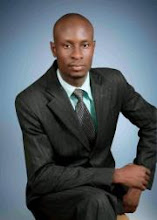To keep your computer running smoothly and
to ensure that it has a long and productive life, follow these tips.
|
|
Keep the computer away from heat sources (like radiators and heat registers). Heat is a computer's enemy. |
|
|
There is a fan built into the back of the CPU case. Keep this unobstructed and clean. A vacuum cleaner nozzle with a brush attachment is a useful fan cleaning tool |
|
|
|
|
|
Clean the keyboard with a vacuum cleaner
nozzle equipped with a brush tool.
|
|
|
Periodically clean the air vents on the
side and back of the monitor with the vacuum brush.
|
|
|
Keep the monitor screen clean with a soft
cloth. Use no detergents, chemicals or soaps. It works best if
you clean the monitor when it is off. Otherwise, static electricity can
compete with your cloth for the dust and grime.
|
|
|
Wipe off the keyboard keys with a soft
cloth dampened with rubbing alcohol or other mild cleanser. Washing
your hands before using the keyboard will keep it cleaner. Eating
greasy finger foods while using the computer is not recommended.
|
|
|
About once a year, unhook the CPU case,
take it outside (on a nice clear warm day), remove the case cover and take a
look inside. If it has accumulated a lot of dust, cobwebs, and grit,
you might want to invest in a can of compressed air and give it a good blast
to clean it. Unless you know what's what, you shouldn't probe around
with your fingers. Static discharges can zap sensitive electronic
components.
|
Mainframes compuer
microcomputer
INTRODUCTION
The
word ‘computer’ is an old word that has changed its meaning several times in
the last few centuries. Originating from the Latin, by the mid-17th century it
meant ‘someone who computes’. The American Heritage Dictionary (1980) gives its
first computer definition as “a person who computes.” The computer remained
associated with human activity until about the middle of the 20th century when it became applied to “a
programmable electronic device that can store, retrieve, and process data” as
Webster’s Dictionary (1980) defines it. Today, the word computer refers to
computing devices, whether or not they are electronic, programmable, or capable
of ‘storing and retrieving’ data.
The
Techencyclopedia (2003) defines computer as “a general purpose machine that
processes data according to a set of instructions that are stored internally
either temporarily or permanently.” The computer and all equipment attached to
it are called hardware. The instructions that tell it what to do are called
"software" or “program”. A program is a detailed set of humanly
prepared instructions that directs the computer to function in specific ways.
Furthermore, the Encyclopedia Britannica (2003) defines computers as “the
contribution of major individuals, machines, and ideas to the development of
computing.” This implies that the computer is a system. A system is a group of
computer components that work together as a unit to perform a common objective.
The term
‘history’ means past events. The encyclopedia Britannica (2003) defines it as
“the discipline that studies the chronological record of events (as affecting a
nation or people), based on a critical examination of source materials and
usually presenting an explanation of their causes.” The Oxford Advanced
Learner’s Dictionary (1995) simply defines history as “the study of past
events.…” In discussing the history of computers, chronological record of
events – particularly in the area of technological development – will be
explained. History of computer in the area of technological development is
being considered because it is usually the technological advancement in
computers that brings about economic and social advancement. A faster computer
brings about faster operation and that in turn causes an economic development.
This paper will discuss classes of computers, computer evolution and highlight
some roles played by individuals in these developments.














0 comments:
Post a Comment
Sign-in to comment
Note: Only a member of this blog may post a comment.